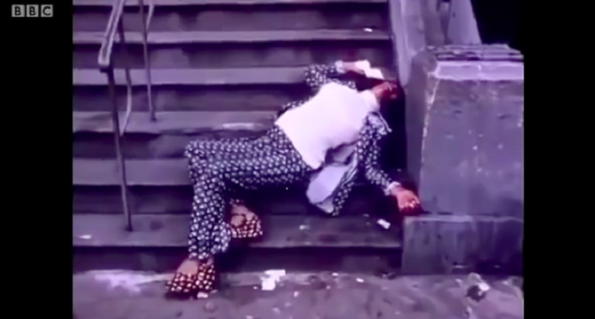Search
To search for an exact match, type the word or phrase you want in quotation marks.
A*DESK has been offering since 2002 contents about criticism and contemporary art. A*DESK has become consolidated thanks to all those who have believed in the project, all those who have followed us, debating, participating and collaborating. Many people have collaborated with A*DESK, and continue to do so. Their efforts, knowledge and belief in the project are what make it grow internationally. At A*DESK we have also generated work for over one hundred professionals in culture, from small collaborations with reviews and classes, to more prolonged and intense collaborations.
At A*DESK we believe in the need for free and universal access to culture and knowledge. We want to carry on being independent, remaining open to more ideas and opinions. If you believe in A*DESK, we need your backing to be able to continue. You can now participate in the project by supporting it. You can choose how much you want to contribute to the project.
You can decide how much you want to bring to the project.

One of Marcel Duchamp’s best-known maxims is the one that states art is a game among all men of all eras. The respired chess-player stimulated in this way a playful vision, historic speculation and active imagination as coordinates for creation. Artistic research has channelled this impulse for research to define a critical production, one which by alternating methods manages to generate another type of logic, the application of which covers a broad range of fields of knowledge. On an academic level, as a result of the Bologna Process (integrating the educational systems of countries within the European area, beyond the limits of the European Union, including Russia, Turkey and Kazakhstan) doctorates, and departments defining this area, have appeared, mainly due to the need to systematise space to be able to access economic resources. In this way, articles and books dedicated to this “discipline” have multiplied over the last few years, abounding in a rhetoric that often contributes to a confusion facilitated by the university system itself and the onus of “publish or perish” that remains in force as a way to justify academic activity and gain recognition based on the number of citations. That said, those interested in knowing more about artistic research can look for references at the MIT or in the Book of Books from dOCUMENTA(13) [[[In relation to intuition, the text by Chus Martínez is of particular interest.]]], entertain themselves with Aby Warburg, read Hito Steyerl and Ute Meta Bauer, or surf the internet in search of university networks and publications in use. Instead of resuming this immense space here, I’d like to suggest intuition as a tool for inexactitude, and inexactitude as a space for opposition.
In An Introduction to Metaphysics Henri Bergson suggests intuition as a pathway to knowledge distinct from analysis. Bergson’s criticism of analysis is that it is based on a systematic application of predetermined structures, a representation that limits and codifies the object of study translating it into an operable representation and thus distancing it from its essence. Intuition, on the contrary, synchronises with the object in question, facilitating a fluidity, a type of connexion that avoids the imposition of prior knowledge, causing an intellectual sympathy to emerge with which to conceive a different composition, a knowledge that is not an aim in itself so much as one that generates something beyond causal reasoning. In this way, intuition is a tool for associative thinking that goes beyond scientific rigour to permit a different relation between elements, evidencing movement as a form of thinking. At the same time, it offers another type of apprehension of the world and enters into harmony with forms of unregulated knowing. Here there is the risk of one confusing an unregulated knowledge for one based solely on personal experience, making this yet another victim of charlatanism or in the best of cases historic ignorance, where each generation repeats the same steps as if they were new discoveries.
Research derived from intuition leads us, on the one hand, to an altered procedure that is capable of treating disparate objects of study and arriving at unexpected relations that reveal the conditions of the present. When talking about the design of commercial display units of ex-Yugoslavia, as much as if we deal with the networks of distribution of cocaine in American universities, intuitive thinking tends to evidence the way these phenomena interconnect in networks and links that alter the (official) constructed narratives. Hence, artistic research is the production of a discourse against hegemony and the norm (Steyerl), based on the recuperation of historic episodes that demonstrate how the current ordering is pure propaganda programmed to deactivate risks and opposition. Conspiracy theories enter into this space of redefinition of the present, being at once a tool of distraction designed by the secret powers and a sort of proto-journalism of research. We find an interesting dissection of this phenomenon in Adam Curtis’s recent documentary HyperNormalisation (2016) where he exposes perceptual management, as a strategy for the manipulation of what we see and hear. The fashionable term, post-truth, indicates the depth of the fall of public reasoning exploited by certain sectors for the control of the imagination and fear. Welcome to Post-Democracy.
Intuition, moreover, is a tool of knowledge that hurls us towards unpredictable relations and guides us towards results that don’t need an explicit reasoning, causing an inexactitude to emerge that although informed avoids precision. A gesture of opposition against the structures of efficiency and standardised production of neoliberalism, akin to the negation of work which in this world in crisis has become taboo. Today we are all occupied but nobody does anything. The precariousness and elimination of the limits between work and living nourish a discourse of guilt of unproductivity, condemning to working ostracism those who don’t adapt to the predetermined rhythms and methods. A discourse that in turn is fed by the rhetoric of the spa, retreats, and coaching, that benefit from the same rhythms they are said to combat. Exclusion and anxiety paralyse the individual, who bewildered witnesses the dismantling of the European phantasy of comfort and the emergence of the worst combination of intolerance, fanaticism, and economic pillaging, (neoliberalism and neo-fascism go hand in hand). The working conditions resulting from the crisis already existed previously in the sector of art and culture, situating the art professional at the forefront of labour flexibility, the heroismof the entrepreneur, and the appropriation of unpaid labour.
Even knowing that the only way out is a change in the model of production, we remain tied to a dynamics of exploitation and extraction that is at the same time the reflection of a model of production of knowledge. The Situated Knowledges of Donna Haraway proposes a way of seeing the world that abandons the omnipresent gaze on a passive and stable object, to seek objectivity through a partial perspective. A knowledge, which corresponds to a split and contradictory subject, capable of questioning and imaging another construction of reality, a vision that isn’t possession, so much as “bound imperfection” that allows us to join with the other to see together without the need to become the other. Partial connection as a source of knowledge.
I want to advocate inexactitude, just as Paul Lafargue defended laziness, to evidence how work, and in this case rigour (firmness), is an illness that in the long run delimits the capacity for life as much as for thought. Lafargue forecasts our world: “The blind, perverse and murderous passion for work transforms the liberating machine into an instrument for the enslavement of free men; their productivity impoverishes them.” The distribution of work, the reduction of the working day, ought to be implemented to propitiate a sustainable economy while at the same time granting us a space to be intuitive and inexact, seeking with it not an aim, so much as a process open to curiosity and amazement about the knowledge of the world. Marx’s son-in-law indicates the pathway to be followed to achieve a society that overcomes the “dogma of work” for social liberation, to experiment in the arts and in love, to enjoy and discover from the bed how “the machine is the saviour of humanity”. To trace a line connecting laziness with inexactitude is risky, perhaps ironically futile, but I dare to connect them as activities of desire, that in themselves contain an enjoyment of the unfinished and of transformation.

Xavier Acarín is fascinated with experience as the driving force of contemporary culture. He has worked in art centres and cultural organizations both in Barcelona and New York, focussing in particular on performance and installation.
"A desk is a dangerous place from which to watch the world" (John Le Carré)